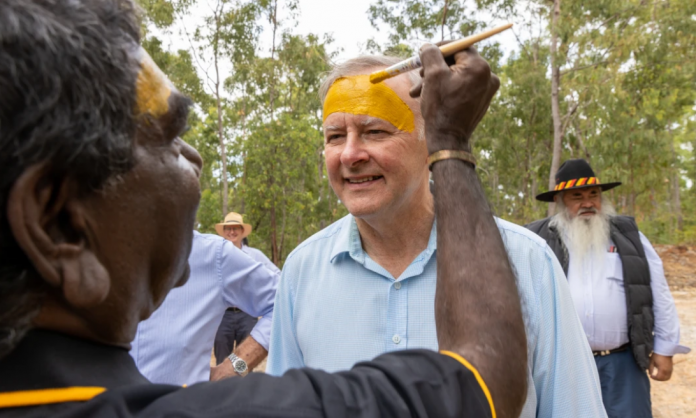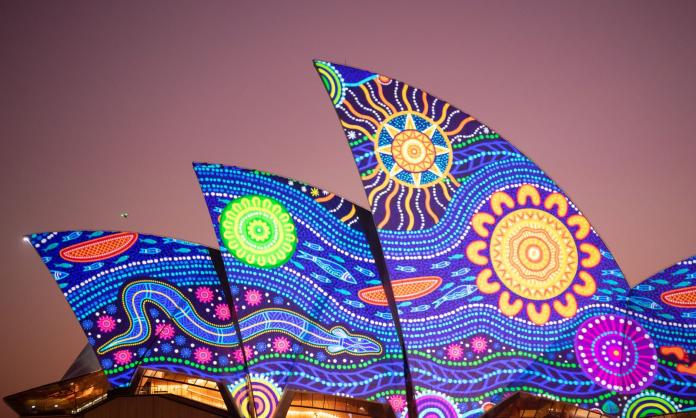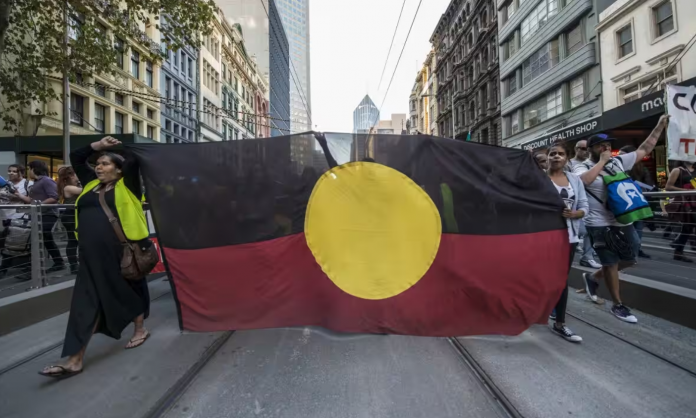Thousands rallied across Aotearoa (New Zealand) in protests called by Te Pāti Māori (The Māori Party) as a new conservative government took office in December. Rally organisers have called the movement “Toitū te Tiriti”, referring to the need to uphold and enhance Te Tiriti o Waitangi (The Treaty of Waitangi) against the new government’s racist attacks. Organisers invited people of all races to participate, and there was a significant minority of non-Māori protesters.
One protester, Quack Pirihi, told Re: news, an online media outlet: “If we don’t stand up now and protest there won’t be any other opportunities. This is what our future descendants will remember us for”. Another protester, Awhina Twomey, said she was marching “to stand up and be counted and to do something not just for Māori but for everybody”, because the government’s policies “aren’t going to be good for the majority, they’ll only be good for the minority”.
Protests occurred in Te Tai Tokerau (The North Coast), Te Whanganui-a-Tara (Wellington), Wairarapa, Tāmaki Makaurau (Auckland), Hauraki-Waikato, Waiariki, and Te Tai Hauāuru (The West Coast). The protest in Whanganui briefly shut down the main highway into the town.
The street marches coincided with a protest from Te Pāti Māori MPs inside parliament. Instead of just swearing allegiance to the King, all six Te Pāti Māori MP’s swore allegiance first to their mokopuna (grandchildren or descendants). Some MPs called King Charles “Hare Hare”, which translates to both Charlie and skin rash or scab.
The protests were called in response to historic attacks on Māori rights by the new government coalition of right-wing racists. Christopher Luxon (prime minister and leader of the National Party), Winston Peters (vice prime minister and leader of New Zealand First), and David Seymour (vice prime minister and leader of Act) have announced a policy platform focused on attacking Māori, workers, the poor and the environment.
Seymour has over a decade of experience attacking the rights of workers and Māori. He describes himself as a libertarian, same as Argentina’s new far-right president Javier Millei. This brand of politics despises state support for workers and the poor. Seymour cut his teeth in Canada, at the Frontier Centre for Public Policy, and the Manning Centre, both conservative think tanks with a long history of racist campaigns denying the ongoing effects of colonisation and capitalism on Indigenous people.
Seymour has been the MP for Epsom since 2014. Epson is the wealthiest electorate in the country, with a median household income of NZ$118,300. He became a household name during the pandemic, during which he opposed almost all the health measures implemented to stop the spread of the virus.
Winston Peters is a more familiar face, having been elected to parliament fifteen times. He began his career as a National MP in 1975. After leaving the National Party, he established New Zealand First, a right-wing party. Peters’ support is concentrated among people over 60, and he is known for his racist, anti-immigration and socially conservative rhetoric. He voted against the decriminalisation of homosexuality in 1986 and the Marriage Amendment bill that legalised same-sex marriage in 2012.
Christopher Luxon is a boss-turned-politician, having previously been the CEO of Unilever Canada and of Air New Zealand. While in charge of Air New Zealand, the company’s business unit, Gas Turbines, supported Royal Saudi Navy vessels while the vessels were blocking humanitarian aid being sent to Yemen.
The government is repealing fair pay laws (introduced by Labour to allow minimum pay and conditions across entire sectors), extending 90-day trial periods across more workplaces, introducing sanctions on welfare recipients who fail requirements, and cutting Core Crown spending (spending on social services like welfare, health and education) to fund tax cuts for the wealthy. They are restoring mortgage interest deductibility for rental properties, and attacking renters’ rights, with special attacks on renters in Kāinga Ora (public housing).
At the same time, more funding is being pumped into police and prisons, including creating a new “young serious offender category” and “young offender military academies”, essentially establishing juvenile detention. Māori are already the most incarcerated demographic in Aotearoa (more than 40 percent of incarcerated men and 60 percent of incarcerated women, despite making up only 18 percent of the total population), and these measures will only intensify the oppression of Māori by the state.
The new government is also embarking on a culture war against Māori people and the gains they have made over the last century. A Treaty principles bill, which puts the content of Te Tiriti o Waitangi (The Treaty of Waitangi) up for debate and amendment, will be introduced to a select committee. Te Aka Whai Ora (The Māori Health Authority) is also being dismantled.
On top of this, Te Reo, the Māori language, will be effectively banned in government. All communication in public service departments, and all departments are to be named (unless related specifically to Māori) exclusively in English.
These historic attacks on Māori rights are being pushed by Peters and Seymour, themselves both of Māori ancestry. They argue that Te Tiriti, and Māori co-governance, anti-democratically favours Māori and are too expensive to be continued. This conveniently distracts from and defers blame for the cost-of-living crisis onto Māori, who are struggling the most. The reality is Māori are still falling behind in almost every social measure. Nearly a quarter of Māori and Pasifika people are likely to experience persistent deprivation, higher than any other demographic in the country. Life expectancy for Māori men is 7.3 years lower than the national average, and is 6.9 years lower for Māori women.
Te Tiriti o Waitangi is the founding document between British colonists and Māori, and established tino rangatiratanga, or self-determination, for Māori, among other rights. However, Te Tiriti was purposefully written in vague terms by the British, especially when translated into Te Reo. The document was always intended to subdue the militant Māori war against colonisation, and steal land under legal cover. Subsequent governments, both left and right, have continued to steal land and flagrantly break Te Tiriti o Waitangi. Ninety-five percent of land in Aotearoa has been alienated from Māori. Te Tiriti doesn’t go far enough in defending Māori rights, hence the demand to uphold and enhance Te Tiriti.
The richest 10 percent of Aotearoa’s population owns 25 percent of the country’s assets, while the poorest 50 percent own just 2 percent according to Max Rashbrooke, author of Inequality: A New Zealand Crisis. It is the rich who are anti-democratically favoured, and the policy program of the new government will only exaggerate this.
The coalition only just cobbled together a majority government, with the National Party winning just 38 percent of the vote, Act under 9 percent, and New Zealand First 6 percent. At the same time, support for the Greens and Te Pāti Māori grew. A polarisation is taking place, and support for the centre is collapsing.
Among those moving to the left electorally, the new government is causing outrage. Māori have a long history of powerful movements winning concessions. From repeated land marches, to protesting the whites-only All Blacks rugby tour of South Africa. Māori are often a defiant, militant minority. But Māori cannot defeat this government alone. The protests that have already brought together Māori and non-Māori people against the government are a hopeful sign for the future.










